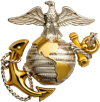
Service Branches
Work Environment
Environmental health and safety officers normally work in offices or research laboratories. They work outdoors while conducting environmental studies and surveys or inspecting facilities.
-
Military Status
Officer
-
Median Military Salary This is the median, or the midpoint, of the salary range for this career.
$74,573
Military Salary Range Salary varies based on years of service, degree level, special pays, family status and location.
$24,876 - $887,060
Overview
Environmental health and safety officers direct programs to protect the health and safety of military members and their families. They apply engineering and scientific principles in anticipating, recognizing, and evaluating occupational and environmental health hazards. These officers design and formulate recommendations to preserve and enhance health and environmental conditions to include air, water, noise, liquid and solid waste disposal, food, and institutional hygiene. They also lead hazardous material control and public contingency response initiatives.
Military Training
Officers typically enter the Military after they have completed a four-year college degree; enlisted service members can transition to officer positions through a variety of pathways and earn a degree while serving. Like other officers, fleet maintenance managers complete a comprehensive training program covering responsibilities, military structure and etiquette, traditions, and leadership development. Additional training consists of classroom and field training. Job-specific training content may include:
- Methods and procedures for health threat assessment
- Disease and environmental surveillance techniques
- Development of countermeasures for actual and potential threats
Helpful Attributes
- Interest in conducting research or analytical studies
- Interest in protecting the environment
- Interest in work requiring accuracy and attention to detail
Related Civilian Careers
- Hydrologists
- Chemical Technicians
- Agricultural Inspectors
- Food Scientists and Technologists
- Compliance Managers
- Environmental Engineers
- Medical and Health Services Managers
- Construction and Building Inspectors
- Hazardous Materials Removal Workers
- Emergency Management Directors
- Environmental Scientists and Specialists, Including Health
More careers in this field
See all













